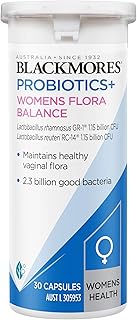OB-GYNs on social media are pushing back against the supplement industry’s invasion of vaginal health. Videos featuring doctors like Staci Tanouye, Karen Tang, and Ali Rod have gone viral, cautioning against unconventional practices like inserting yogurt, garlic, or herbal products into the vagina. These physicians are concerned about the misinformation spread by non-medical influencers endorsing questionable vaginal hygiene practices.
Historically, women have been bombarded with messages promoting feminine hygiene products as essential for cleanliness. From Lysol’s harmful contraceptive claims in the 1930s to modern-day ads pushing scented douches, the industry has long capitalized on women’s insecurities. Today, the feminine hygiene market is booming, with a shift towards supplements like Kourtney Kardashian’s vaginal health gummies, promising dubious benefits.
Boric acid suppositories have gained popularity among women seeking to prevent yeast infections. However, these products can have adverse effects, as experienced by Allison, who suffered severe discomfort after using them. While boric acid may help restore vaginal pH balance in certain cases, experts warn against its indiscriminate use due to potential side effects.
Probiotics have emerged as a possible solution for maintaining vaginal health, given the importance of the vaginal microbiome. However, the efficacy of vaginal probiotics remains inconclusive, with concerns over product quality and safety. Brands like Seed and Bonafide have conducted clinical trials on probiotic strains specifically designed for vaginal health, but further research is needed to validate their benefits.
While the supplement industry continues to promote various products for vaginal health, medical professionals emphasize the importance of caution. Doctors recommend hyaluronic acid suppositories for vaginal dryness, a common issue affecting many women. Maintaining proper vaginal hygiene, such as gentle cleansing with water and avoiding scented products, is crucial for overall health.
Despite marketing tactics targeting women, the consensus among experts is clear: the vagina is self-cleaning and doesn’t require excessive intervention. Advocates for women’s health call for more research and evidence-based practices to counter the pervasive myths perpetuated by the feminine hygiene industry. By prioritizing accurate information and safe practices, women can make informed decisions about their vaginal health.
📰 Related Articles
- Experts Warn Against Coffee Enemas for Health Benefits
- Top 10 Health Care Innovations Revolutionizing the Industry
- Music Industry Launches 24-Hour Mental Health Support Service
- How Gatekeeping and Mental Health Impact Emerging Artists in Music Industry
- Health Industry M&A Surge Expected in 2025






